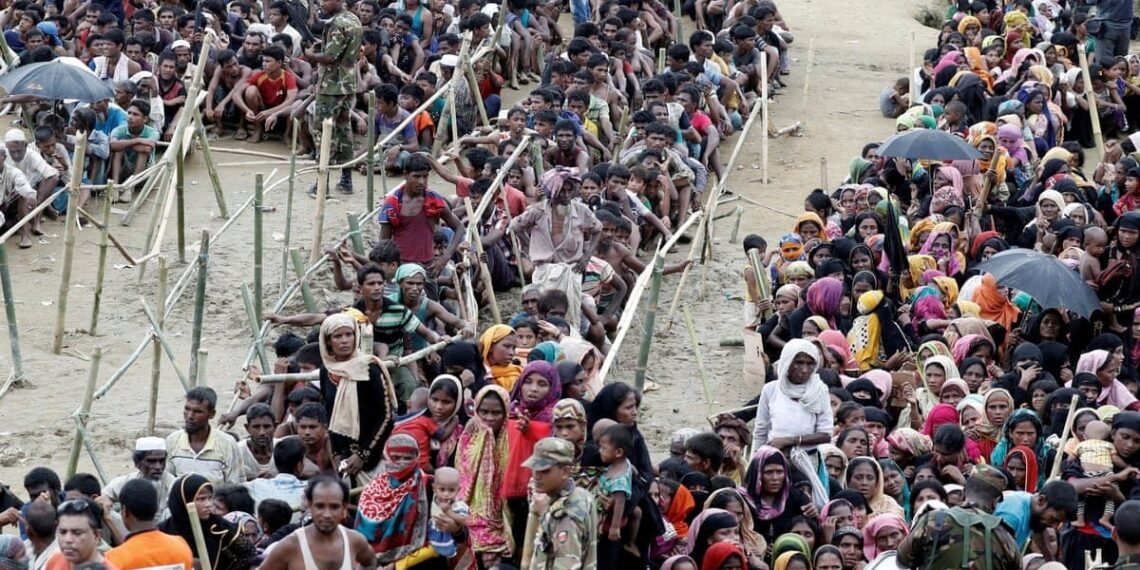Thousands of Rohingya refugees living in Bangladesh observed the eighth anniversary of their displacement from Myanmar by staging demonstrations and calling for a safe and dignified return to their homeland.
On Monday, large groups of refugees gathered in Kutupalong camp, one of the world’s largest refugee settlements in Cox’s Bazar.
Holding placards that read “No More Refugee Life” and “Repatriation Is the Only Solution,” they marked what they described as “Rohingya Genocide Remembrance Day.”
“We want to return to our country with equal rights like other communities in Myanmar,” said 19-year-old protester Nur Aziz. “We want the same rights they enjoy as citizens.”
The commemoration coincided with a three-day international conference on the Rohingya crisis that began Sunday in Cox’s Bazar.
Bangladesh’s interim leader and Nobel laureate Muhammad Yunus, speaking at the event, appealed for global support to ensure a roadmap for voluntary and sustainable repatriation.
“Their connection to their homeland cannot be broken,” Yunus said.
“Their right to return must be guaranteed. We call on all stakeholders to work toward a practical plan for their safe and dignified return to Rakhine at the earliest.”
The mass exodus began in August 2017 when Myanmar’s military launched a sweeping crackdown in Rakhine state after insurgents attacked security outposts.
The campaign, marked by widespread killings and atrocities, forced more than 700,000 Rohingya Muslims to flee into Bangladesh, joining an existing refugee population of over 300,000.
The operation drew global condemnation and accusations of ethnic cleansing and genocide from the United Nations and human rights groups.
ALSO READ: Assam youth’s death sparks mob assault allegations; family files police complaint
Despite repeated attempts by Bangladesh to initiate repatriation—with backing sought from China and other countries—efforts have stalled amid ongoing conflict in Myanmar, particularly in Rakhine state.
Conditions for return remain unsafe, while refugees in Bangladesh continue to face worsening challenges, including cuts in international aid.
Yunus urged global and regional actors to maintain humanitarian assistance and engage with all parties to the conflict to resolve the crisis.
“We appeal to the international community to recalibrate their relations with Myanmar and ensure progress toward an early and sustainable solution,” he said.















